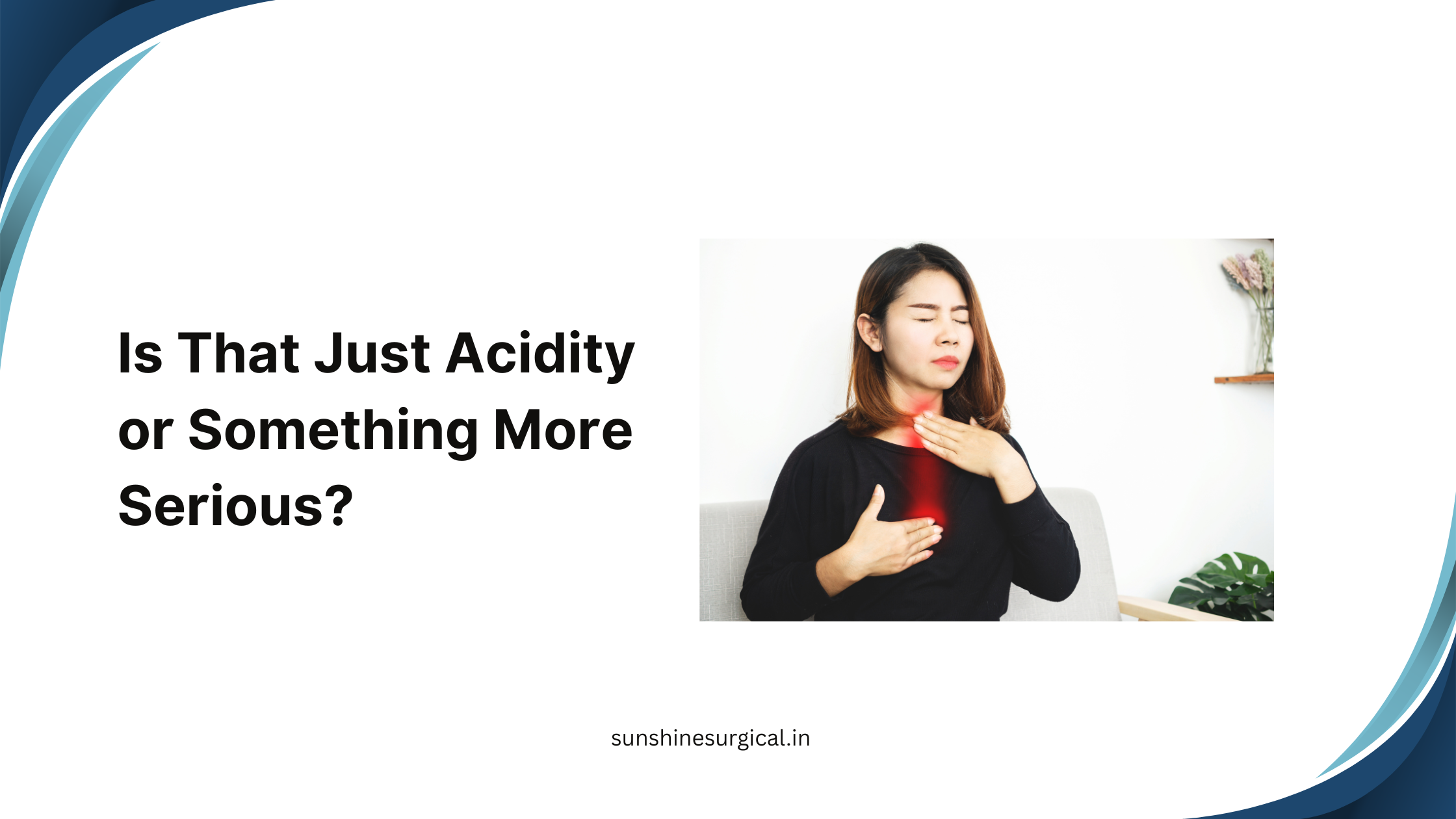 30 Jun 2025
30 Jun 2025
Everyone experiences acidity or heartburn once in a while — maybe after a spicy meal or late-night binge. But what if it happens frequently? What if that “burning” in your chest or abdomen is not just acidity, but a warning sign of a deeper issue?
At Sunshine Surgical Hospital, we often see patients who ignore digestive symptoms for weeks or even months, only to find out they have something more serious — like a gallbladder stone, hernia, or even an ulcer.
Common Symptoms of Acidity — and When They Might Mean More
Let’s break it down. Occasional acidity can include:
- A burning sensation in the chest (heartburn)
- Bloating or gas
- Sour burps or acid reflux
- Mild stomach discomfort after meals
But if you’re experiencing any of the following regularly, it’s time to consult a doctor:
Red Flags to Watch:
- Persistent upper abdominal pain
- Nausea or vomiting after eating
- Sudden loss of appetite or weight
- A lump or bulge in your stomach or groin
- Chest pain that mimics acidity but doesn’t go away
- Blood in vomit or black-colored stool
These symptoms could be linked to:
- Gallstones
- Hiatal or abdominal hernia
- Gastric ulcers or infections
- Gastroesophageal Reflux Disease (GERD)
- Appendicitis or pancreatitis
Why You Shouldn’t Self-Medicate
Many people pop antacids daily or rely on home remedies — but this only masks the problem. Conditions like gallbladder disease or ulcers worsen over time if left untreated.
At Sunshine Surgical Hospital, we’ve treated countless patients who delayed a diagnosis, leading to unnecessary complications.
What We Offer at Sunshine Surgical Hospital
Our gastro and surgical experts use advanced diagnostic tools like:
- Ultrasound & Endoscopy
- Laparoscopy for precise internal viewing
- Blood & liver function tests
If needed, we offer laser and minimally invasive surgeries for gallstones, hernia repair, appendicitis, and other gastrointestinal issues — ensuring quicker recovery, minimal pain, and same-day discharge in many cases.
Simple Tips to Manage Acidity (if it’s truly just that):
- Eat smaller, frequent meals
- Avoid late-night eating and heavy dinners
- Limit spicy, oily, or fried foods
- Stay active and maintain a healthy weight
- Avoid excess tea, coffee, or alcohol
But remember: If it keeps coming back, get it checked.
Don’t Ignore Persistent Discomfort
What starts as a small digestive issue could be your body signaling something more. Early detection and treatment are key to avoiding bigger surgeries and faster healing.
Book a consultation today with our specialists at Sunshine Surgical Hospital.
We’re here to help you feel better — faster.